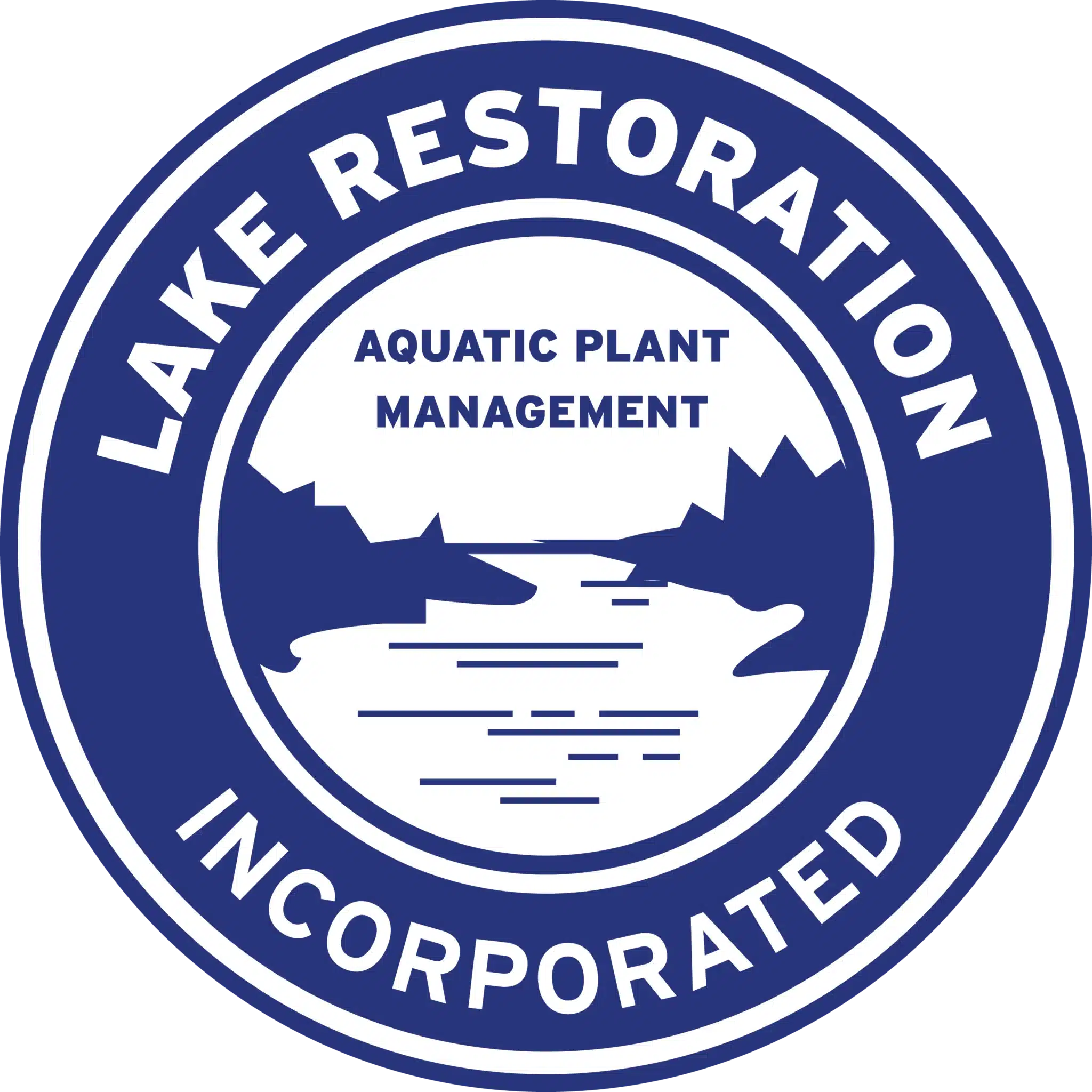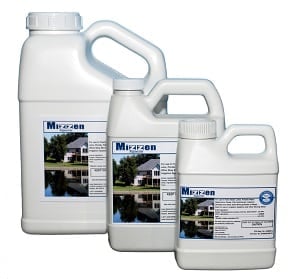Articles
Indiana Aquatic Weed Control and Pond Management
Invasive aquatic plant species in Indiana’s waterways are a source of biological pollution that threaten the ecology of the states’ water resources. These resources are at risk when nuisance exotic plant species invade these ecosystems. Below is a guideline for approaching Indiana aquatic weed control along with a list of the more common aquatic weeds…
Read MoreLake Restoration Introduces Mizzen™, a Copper-Based Algaecide
We are proud to introduce a new pond algaecide, a product called Mizzen™. Mizzen is a copper-based algaecide that is is designed for pond and weed control usage, including both planktonic and filamentous algae. Algae actively grows from spring into autumn, and as summer temperatures climb, algae growth can be overwhelming without assistance. Our Mizzen™…
Read MoreHydrilla Killer: How to Effectively Kill Hydrilla
Hydrilla is a submerged plant commonly found in ponds and lakes throughout the United States. The plant is an invasive species that originated in Southeast Asia and, once it becomes established, quickly grows over other plants species in its area and starts to harm fish and wildlife. Hydrilla can grow up to one inch per…
Read MoreThe LAKEMAID® – A Better Mechanical Weed Cutter
Do you have a weed problem around your dock but don’t want to (or can’t) use chemicals? We have the perfect solution for you! The LakeMaid is the ultimate automatic weed removal system. It consists of a long floating arm propelled by a submerged pump that drags weed-removing rakes across the lake bottom. This repetitive…
Read MoreFlorida Aquatic Weed Control in Ponds
Florida has over 7700 ponds and lakes and a variety of species of invasive pond weeds. Here are some of the more common aquatic pond weeds found in Florida and how you can control them. Water hyacinth Water HyacinthWater hyacinth is native to South America but has naturalized in much of the Southern U.S. For…
Read MorePond Winterizing: Pond Preparation for Fall and Winter
It is a great idea to begin winterizing your pond once the fall weather comes and the pond’s water temperature begins to approach 60 degrees Fahrenheit. The first step to pond winterizing and preparation is reducing debris and other organic matter. Any organic material in your pond will decay during the winter and deplete the…
Read MoreMichigan Aquatic Weed Control and Pond Management
Lake Michigan has been subject to invasions of aquatic weeds species since the settlement of the region by Europeans. Since the 1800s, at least 140 non-indigenous aquatic organisms have been introduced to the Great Lakes ecosystem. Aquatic weeds come in the form of flora and fauna, and here we focus on the six most widespread…
Read MorePond Colorant: More Than Just Water Color Dye
Due to uncontrollable geographic properties, a pond’s water may become dull, cloudy, or a dirty brown. A great way to reconcile this and enhance the beauty of your pond is to use a special pond colorant designed specifically for ponds. Not only do the colorant dyes change the color your pond, but many dyes such…
Read MoreControlling Leeches, Frogs, Muskrats and other Pond Predators
When managing a pond, it is important to be aware of the many residents that will call it home. Birds, fish, amphibians, and rodents will flock to a well-kept pond. There will also be predators playing their part in the pond’s balanced ecosystem. You should make sure to monitor them and decide if you need…
Read MoreHow to Prevent Swimmer’s Itch in Your Pond or Lake
When it comes to summer nuisances, Swimmer’s Itch easily trumps mosquito bites. Reddened spots, called papules, can itch intensely for up to a week, even with treatment. That could easily ruin a weekend, or even an entire vacation. Once you’ve had a case, you certainly won’t want to get it again! So what is the…
Read MoreFluridone — Principles of an Effective Aquatic Herbicide
When Fluridone is absorbed by a plant, the plant’s ability to generate energy through photosynthesis is restricted. If the plant can no longer convert the sun’s light into energy, then it ceases to grow and subsequently dies off. Fluridone is a slow acting aquatic herbicide that diffuses throughout an entire water body and can take…
Read MoreBackyard Pond Care and Management – The Essentials
Backyard ponds can be a great source of beauty and enjoyment for many homeowners. Having a pond in your backyard often adds a feeling of tranquility to your property. However, ponds can quickly fall into poor health and degradation if not maintained. Proper backyard pond care and management requires a commitment from a well-informed pond…
Read MoreTexas Pond Management and Pond Weed Control
In Texas, which has thousands of ponds and a multitude of invasive pond weed species, proper pond management is critical to keeping Texas water clean and healthy. Learning to identify problem aquatic weeds is the all important first step. Once identified, the proper measures can be taken to initiate sound management and control. Here are…
Read MoreLake Shore Weed Control & Removal — The Essentials
There are many species of lake weeds that can overtake a lake shore. Some of the more common lake weeds that grow below water (submerged) include: hydrilla, Eurasian watermilfoil, curlyleaf pondweed, elodea and many others. Submerged lake weeds may grow to the surface and interfere with swimming, fishing, boating, and the visual enjoyment of the…
Read MoreAquatic Weed Management — Lake Restoration’s Role in Preserving Ponds & Lakes
Aquatic weed management can be a challenging job once invasive aquatic plants gain a foothold. But there are a variety of safe, cost-effective products and services on the market today that can help communities preserve their most important assets. One of the biggest problems facing lakes in the Upper Midwest is the invasion of Eurasian…
Read More

